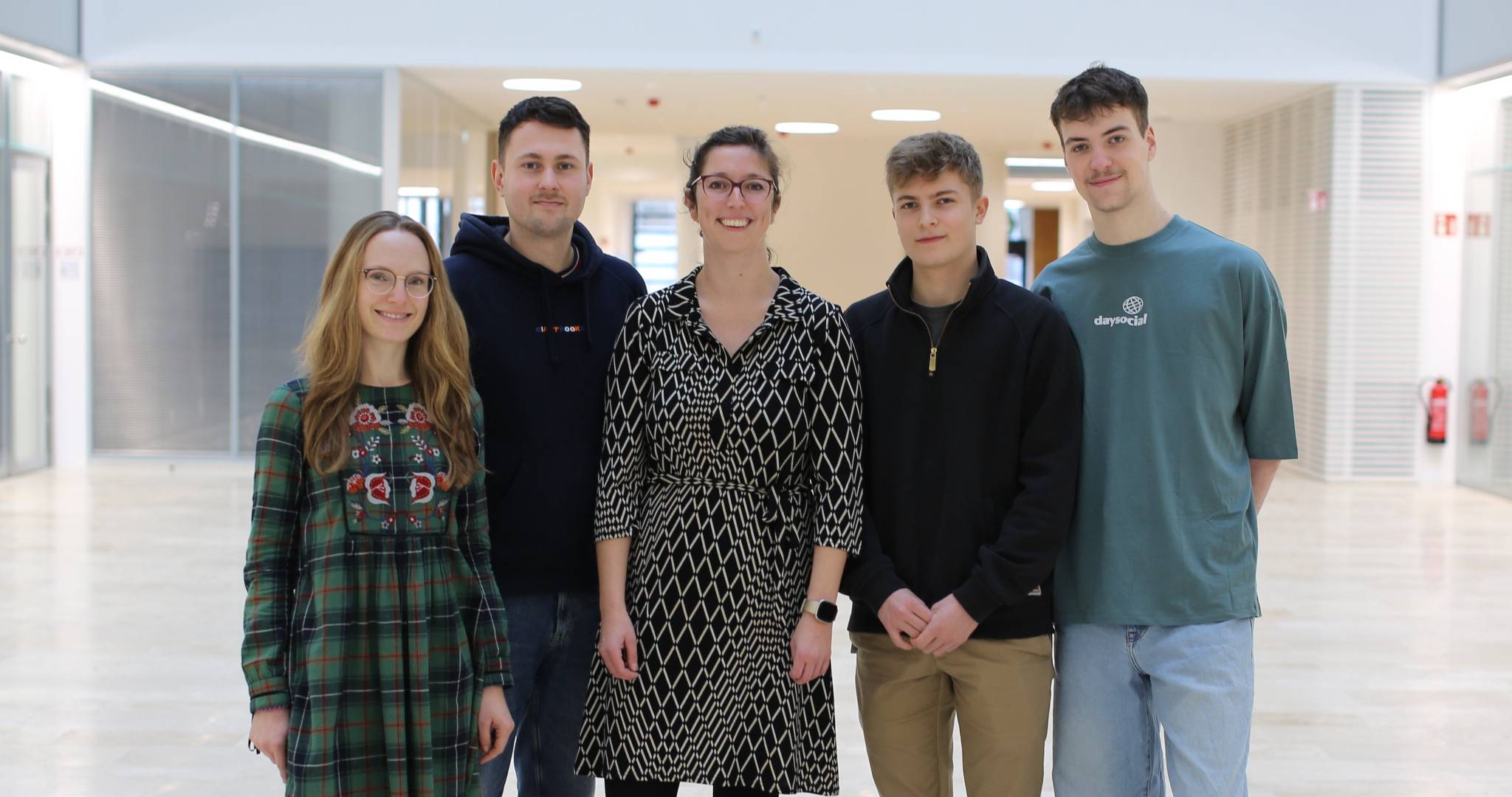Drosophila Models of Neurodegeneration

Team: Melissa Vos, PhD (Group leader); Yuliia Kanana, PhD (research technologist); Ludwig Kayser (bachelor student); Till Krauße (medical student); Jost Rody (intern)
The main focus of the research team ‘Drosophila models of Parkinson’s disease (PD)’ is studying the underlying mechanisms that are causative for PD in a fly model. Many genes that are causative for PD, are conserved amongst species and for most genetic forms of PD, fly models exist. Although the etiology of the disease remains elusive, mitochondria have been suggested to play an important role in the disease in both sporadic and genetic forms. Thus, studying the function of these genes can help us to understand the pathways underlying both genetic and sporadic forms of PD. At least two PD-causing genes, PINK1 and Parkin, have a mitochondrial link. Parkin is an E3 ligase that functions in mitochondrial clearance (mitophagy) and PINK1 is a mitochondrial kinase. In flies, loss of PINK1 or Parkin result in very similar phenotypes in the fly, including motor problems (defects in flying ability) and several mitochondrial defects (ETC-related defects and morphological abnormalities), suggesting a common pathway for these proteins. Indeed, it was previously shown that Parkin acts downstream of PINK1 and that PINK1 and Parkin function in a common pathway. Studies show that PINK1 also has a Parkin-independent function at the level of Complex I of the electron transport chain. How loss of these protein functions result in PD still needs to be elucidated. Using genetic tools, we aim to dissect the pathway(s) resulting in both genetic and sporadic forms of PD.
We collaborate with Dr. Vanessa A Morais and Prof. Patrik Verstreken (VIB, Catholic University Leuven, Leuven, Belgium).